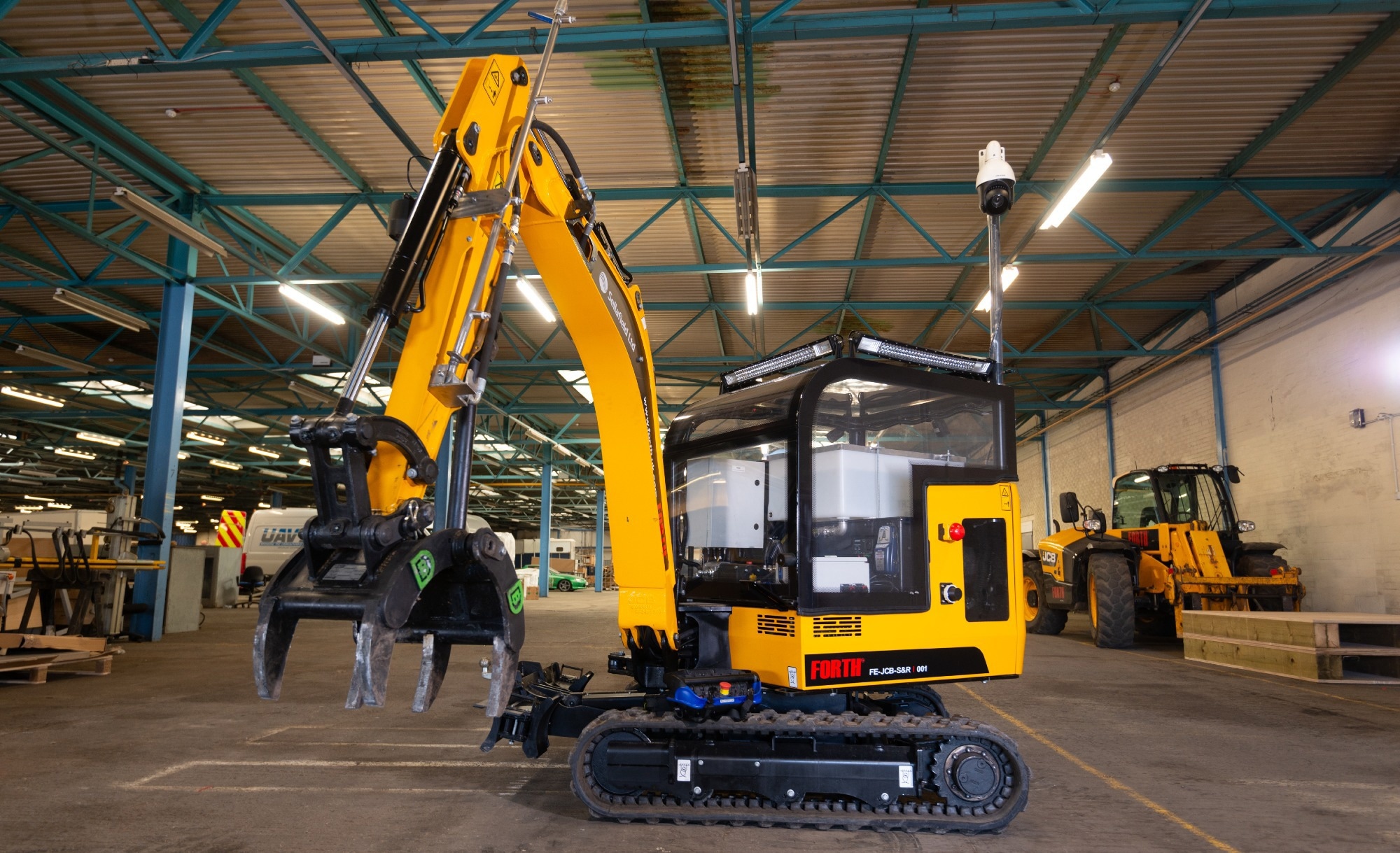REMOTELY operated rescue robots capable of withstanding hazardous environments will make emergency jobs across UK nuclear plants significantly safer and more cost effective.
 The Rescue Robot which has been designed and manufactured by the team at Forth. Image Credit: Forth
The Rescue Robot which has been designed and manufactured by the team at Forth. Image Credit: Forth
Pioneering engineering firm Forth has designed and manufactured the Rescue Robot which can be sent into disaster zones in the event of an incident and be operated from a command and control centre a safe distance away, removing the risk to human life.
The robot has been successfully trialled at Sellafield Ltd nuclear site in Cumbria, and the team at Forth is now looking to roll it out at other plants the length and breadth of the UK.
Mark Telford, Forth’s managing director, said: “The Rescue Robot is a pioneering development which has already been successfully tested in hazardous environments, and it has been manufactured to offer a safe, remotely operated alternative to sending humans into disaster zones.
“By working with Sellafield Ltd, we were able to prove the machine is able to withstand some particularly dangerous conditions, and its various adaptations and capabilities mean that this will be a real asset to the UK’s nuclear industry.
“There are endless amounts of modifications and end effectors which can be included on the robot, and we are excited to be able to provide a product which will make working in nuclear plants across the country much safer, while also saving industry a substantial amount of money.”
The Rescue Robot has been built on a 1.6 tonne JCB compactor excavator platform and fitted with high tech robotics systems and wireless technology, in addition to specialist, robust cameras and lights which won’t be destroyed in hazardous conditions.
Functions of the robot include: a specialist 700bar rescue tool fitted to cut through any hazards in its way; a grapple hook to move any obstruction; an ability to tow a trailer with a fitted hopper to disperse a bund of sand to contain spillages; an affixative spraying system to contain a nuclear spillage.
The robot is also tetherless and can be controlled from a safe space in the control centre up to 150 metres away.
Mark said: “The Rescue Robot has been designed so it can easily be adapted to fit whatever requirements are needed, and the opportunities for the machine to be used are limitless.
“Sellafield Ltd required the development of a 1.6 tonne robot, but we are able to adapt the product to any size and also fit it with any type of tools or end effectors to fit the nature of the project.
“What is extremely exciting to us is that it can also be adapted to work in any industry, and it is a real game changer in reaching some of the most dangerous environments found in sites across the UK.”
A Rescue Robot is now permanently situated in Sellafield Ltd and is on standby to safely carry out any emergency work in the most hazardous zones of the site.
Gus Harding, Sellafield Ltd Security and Resilience Operations Manager, said: “The introduction of the Rescue Robot provides huge benefits in helping to keep humans out of harm’s way if we ever need to respond to an emergency situation.
“The Sellafield site is the perfect testing ground for this sort of innovative technology and having a machine like this so readily available gives everybody peace of mind.”